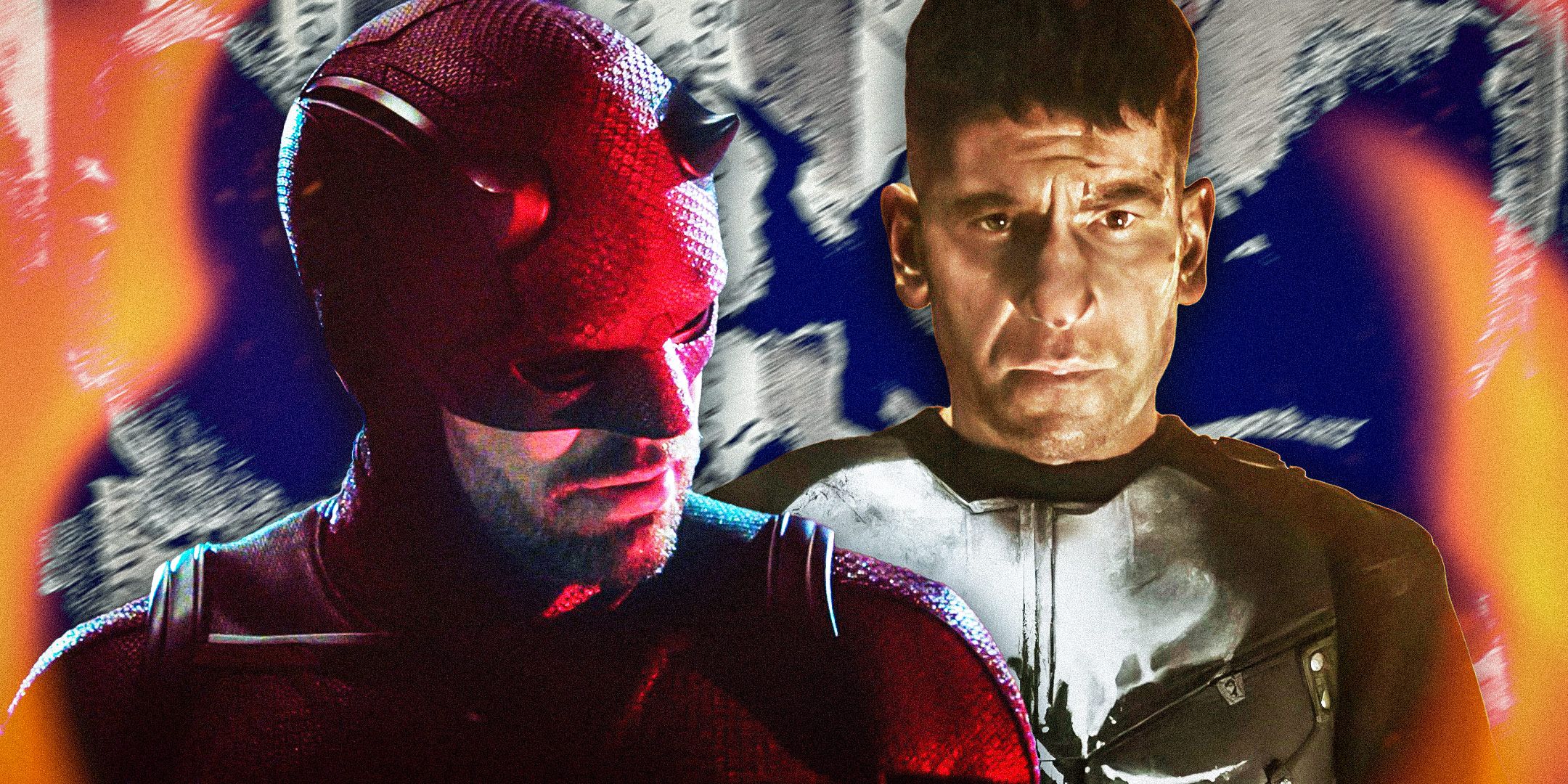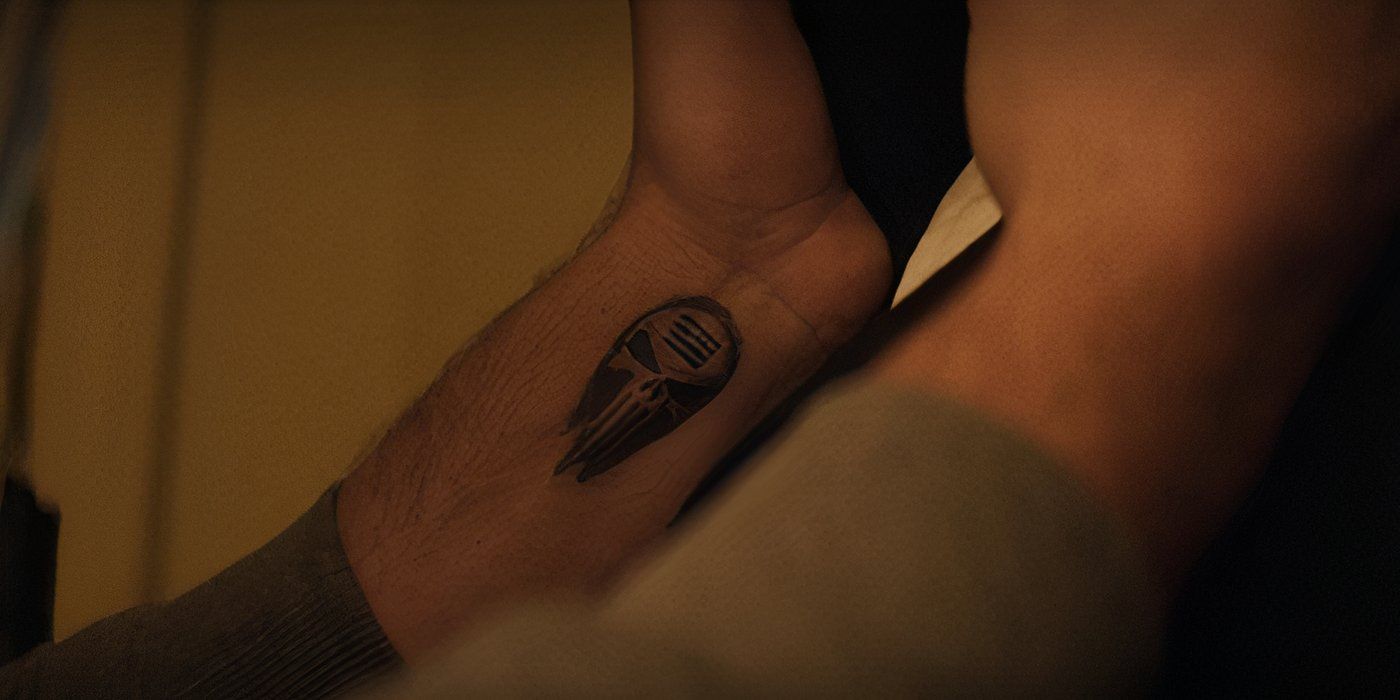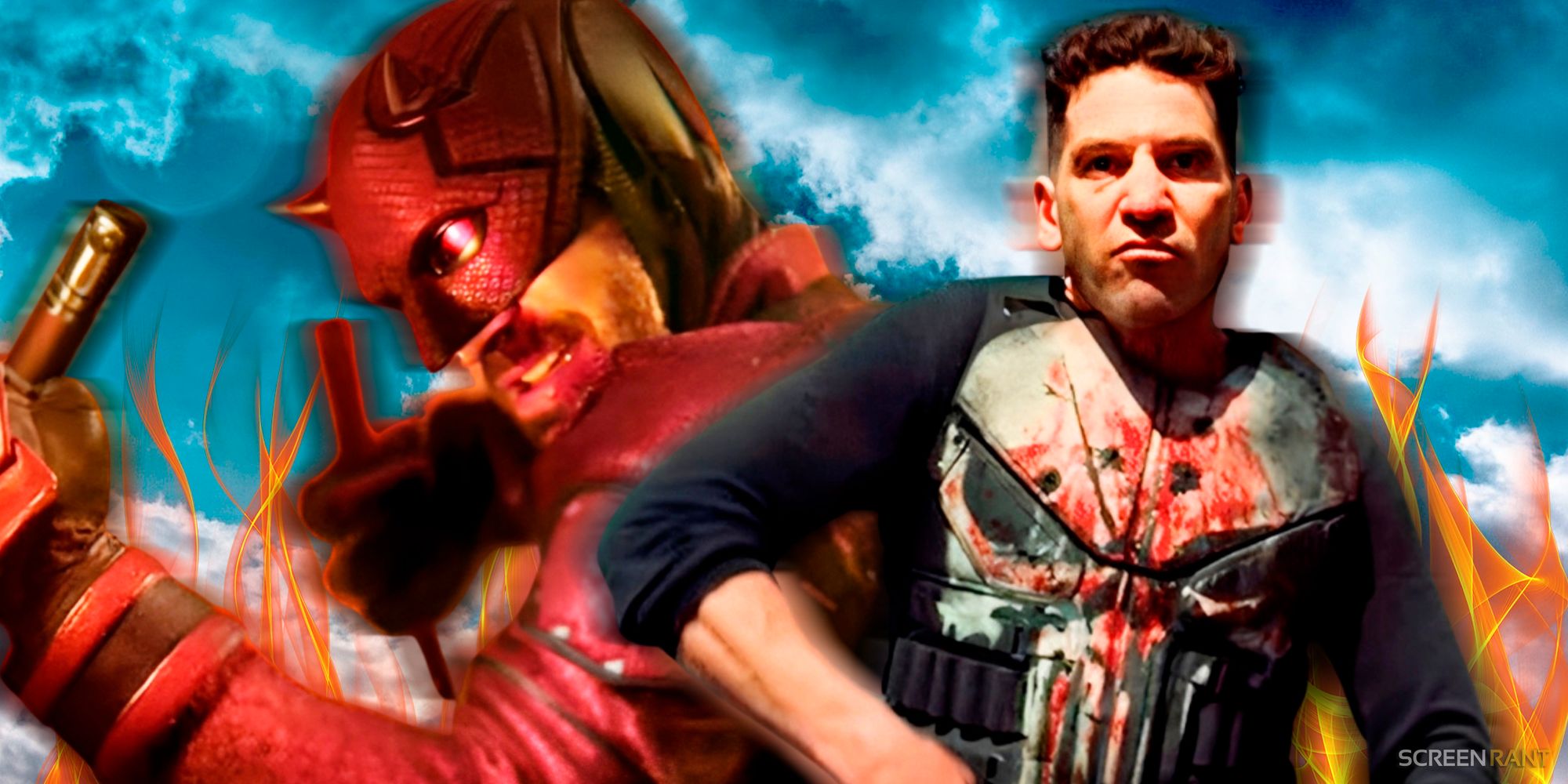Warning! This article contains spoilers for Daredevil: Born Again episodes 1 and 2.
The climactic final scene of Daredevil: Born Again episode 2 introduces viewers to an intriguing twist with the appearance of The Punisher’s logo for the first time, albeit in a slightly altered form and associated with an unexpected character. The eagerly awaited release of Daredevil: Born Again marks the return of the iconic Man Without Fear to the MCU in his first solo narrative since Netflix’s Daredevil was canceled back in 2018. The concluding moments of Daredevil: Born Again episode 2 create a seamless transition, making it feel as though Matt Murdock has never been away, delivering a fresh storyline while honoring the spirit of the original Netflix series.
Following a shocking death in the opening of Daredevil: Born Again, episode 2 thrusts Matt back into his dual life as a lawyer, where he takes on the defense of Hector Ayala, a man wrongfully accused of murdering an NYPD officer during a scuffle. Hector Ayala, a new addition to the cast of Daredevil: Born Again, becomes a target of corrupt police officers who frame him for a tragic accident. In a gripping twist near the conclusion of episode 2, Matt finds himself face-to-face with these rogue officers, one of whom bears a noticeably distinct version of The Punisher’s logo.
Daredevil: Born Again Unveils An Evolved Punisher Logo
The Punisher is Absent, But His Shadow Lingers
In a gripping climax of Daredevil: Born Again episode 2, Matt takes it upon himself to safeguard the sole witness, Nicky, whose testimony could clear Hector Ayala of the serious charges he faces. As the tension escalates, one of the corrupt officers involved in the initial confrontation with Nicky—and later with Hector—attempts to track down the witness as well. This forces Matt to feign ignorance regarding Nicky’s whereabouts, provoking the cop, Powell, to resort to violence, physically assaulting Matt alongside an accomplice who shares his corrupt agenda. As Powell grips Matt against a wall, The Punisher’s logo becomes conspicuously visible, inked on his left wrist.
Curiously, this iteration of The Punisher’s logo deviates from the classic design. While Frank Castle is among the few beloved Marvel characters making a return in Daredevil: Born Again, his presence is notably absent in the series’ early episodes, leaving only the logo as a tantalizing clue to his potential involvement. Rather than the traditional skull emblem associated with this antihero, Powell’s version features a distinctive twist: it incorporates the imagery of an American flag on the forehead. This small yet significant alteration suggests a disturbing fusion of The Punisher’s iconic symbol with the controversial “Blue Lives Matter” movement.
The “Blue Lives Matter” movement emerged as a counter-response to various social justice campaigns, such as Black Lives Matter, aimed at expressing solidarity with law enforcement. This movement has faced extensive criticism and has sparked controversy over its implications. Daredevil: Born Again does not shy away from drawing connections to this movement—potentially through the newly elected mayor, Fisk—indicating the show’s willingness to explore complex societal themes.
Understanding NYC’s Dirty Cops and Their Adoption of Punisher’s Symbol
Corrupt Officers View Frank Castle as a Symbol of Justice
The pressing question after witnessing Daredevil: Born Again episode 2 is why Powell, along with other corrupt officers in New York City, are adopting an altered version of The Punisher’s logo. The prevalent theory points to Frank Castle’s complex moral code, as he is famously known for being a vigilante who interprets justice through his own lens. Frank has a notorious history of meting out extreme punishments, often resulting in severe injuries or deaths for those he deems deserving of his wrath for a myriad of offenses.

Related
The Punisher’s Confirmed Spinoff After Daredevil: Born Again Proves My Biggest Sequel Dream Can Still Become Reality
Jon Bernthal’s Punisher comes back to the MCU in Daredevil: Born Again, but his confirmed spinoff is what’s got me excited for a long Marvel future.
This dynamic highlights the unsettling connection between The Punisher and the corrupt police officers depicted in Daredevil: Born Again. It becomes evident that many officers in the series are willing to bypass legal boundaries to impose their own version of “justice.” Whether through the brutal treatment of Hector Ayala—who also assumes the role of Daredevil: Born Again‘s White Tiger—or the attempted murder of Nicky to conceal their wrongful actions against Hector, it is apparent that some members of the NYPD are taking the law into their own hands. The series effectively illustrates the moral and ethical dilemmas surrounding such conduct.
This “justice” that Powell and his fellow dirty cops are committed to is not justice at all, but instead a way for them to punish who they want to punish…
Through the narrative, the series asserts Powell’s wrongdoing and clarifies that Hector was merely defending Nicky when one of the undercover NYPD officers fell onto the subway tracks. This “justice” pursued by Powell and his corrupt colleagues is far from legitimate; it represents a personal agenda to punish individuals without facing legal consequences. Frank Castle’s ethos, which revolves around delivering the justice that those bound by law fail to enact, stands in stark contrast to the actions of these officers.
Moreover, there is a parallel between these corrupt officers and Wilson Fisk. Although Fisk’s influence over the NYPD’s dirty officers is not explicitly showcased in the initial two episodes of Daredevil: Born Again, it is evident that characters like Powell share similarities with the newly elected mayor of New York. Fisk’s character is still portrayed as employing morally questionable tactics, such as leveraging threats against families to achieve his goals as mayor. This reflects a troubling alignment with officers who adopt a symbol of punishment to enforce their own version of justice.








